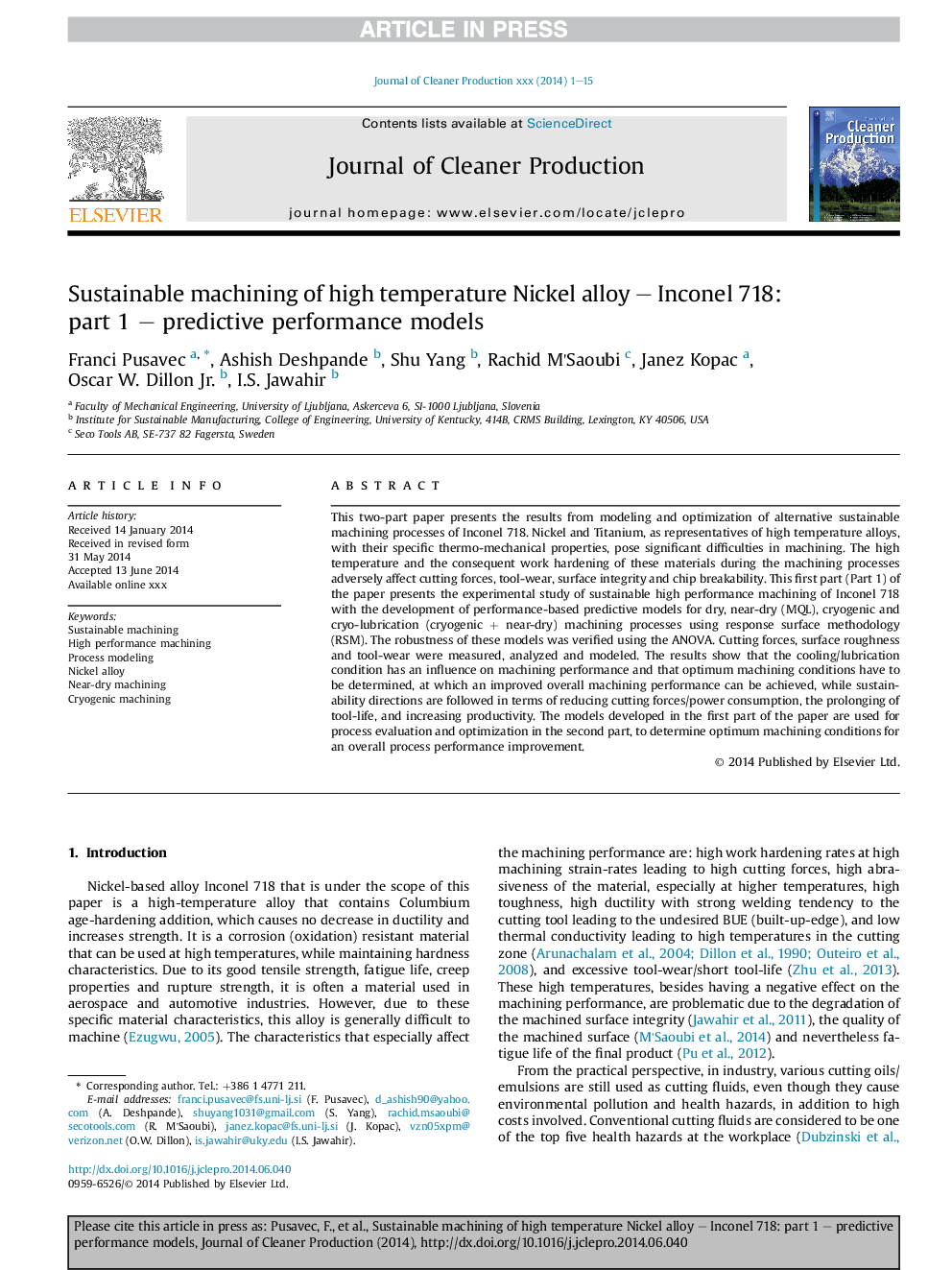| Article ID | Journal | Published Year | Pages | File Type |
|---|---|---|---|---|
| 8105877 | Journal of Cleaner Production | 2014 | 15 Pages |
Abstract
This two-part paper presents the results from modeling and optimization of alternative sustainable machining processes of Inconel 718. Nickel and Titanium, as representatives of high temperature alloys, with their specific thermo-mechanical properties, pose significant difficulties in machining. The high temperature and the consequent work hardening of these materials during the machining processes adversely affect cutting forces, tool-wear, surface integrity and chip breakability. This first part (Part 1) of the paper presents the experimental study of sustainable high performance machining of Inconel 718 with the development of performance-based predictive models for dry, near-dry (MQL), cryogenic and cryo-lubrication (cryogenic + near-dry) machining processes using response surface methodology (RSM). The robustness of these models was verified using the ANOVA. Cutting forces, surface roughness and tool-wear were measured, analyzed and modeled. The results show that the cooling/lubrication condition has an influence on machining performance and that optimum machining conditions have to be determined, at which an improved overall machining performance can be achieved, while sustainability directions are followed in terms of reducing cutting forces/power consumption, the prolonging of tool-life, and increasing productivity. The models developed in the first part of the paper are used for process evaluation and optimization in the second part, to determine optimum machining conditions for an overall process performance improvement.
Keywords
Related Topics
Physical Sciences and Engineering
Energy
Renewable Energy, Sustainability and the Environment
Authors
Franci Pusavec, Ashish Deshpande, Shu Yang, Rachid M'Saoubi, Janez Kopac, Oscar W. Jr., I.S. Jawahir,
